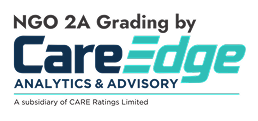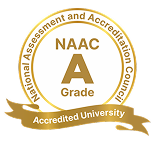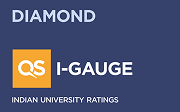OPEN HOUSE 2026 Click here

OPEN HOUSE 2026 Click here

ADMISSION ENQUIRY - 2026
Compiler Design
|
GANPAT UNIVERSITY |
||||||||||||||||||||||||||||||||||||||||||||||||||||||||||||||||||||||||||
|
FACULTY OF TECHNOLOGY |
||||||||||||||||||||||||||||||||||||||||||||||||||||||||||||||||||||||||||
|
Program |
Bachelor of Technology |
Branch/Spec. |
Computer Science & Engineering(CBA/BDA/CS) |
|||||||||||||||||||||||||||||||||||||||||||||||||||||||||||||||||||||||
|
Semester |
VII |
Version |
1.0.0.0 |
|||||||||||||||||||||||||||||||||||||||||||||||||||||||||||||||||||||||
|
Effective from Academic Year |
2022-23 |
Effective for the batch Admitted in |
June 2021 |
|||||||||||||||||||||||||||||||||||||||||||||||||||||||||||||||||||||||
|
2CSE701 |
Subject Name |
COMPILER DESIGN |
||||||||||||||||||||||||||||||||||||||||||||||||||||||||||||||||||||||||
|
Teaching scheme |
Examination scheme (Marks) |
|||||||||||||||||||||||||||||||||||||||||||||||||||||||||||||||||||||||||
|
(Per week) |
Lecture (DT) |
Practical (Lab.) |
Total |
CE |
SEE |
Total |
||||||||||||||||||||||||||||||||||||||||||||||||||||||||||||||||||||
|
L |
TU |
P |
TW |
|||||||||||||||||||||||||||||||||||||||||||||||||||||||||||||||||||||||
|
Credit |
3 |
0 |
1 |
0 |
4 |
Theory |
40 |
60 |
100 |
|||||||||||||||||||||||||||||||||||||||||||||||||||||||||||||||||
|
Hours |
3 |
0 |
2 |
0 |
5 |
Practical |
30 |
20 |
50 |
|||||||||||||||||||||||||||||||||||||||||||||||||||||||||||||||||
|
Pre-requisites: |
||||||||||||||||||||||||||||||||||||||||||||||||||||||||||||||||||||||||||
|
Discrete Mathematics, Theory of Computation |
||||||||||||||||||||||||||||||||||||||||||||||||||||||||||||||||||||||||||
|
Learning Outcome: |
||||||||||||||||||||||||||||||||||||||||||||||||||||||||||||||||||||||||||
|
After completion of the course, student will be able to:
|
||||||||||||||||||||||||||||||||||||||||||||||||||||||||||||||||||||||||||
|
Theory syllabus |
||||||||||||||||||||||||||||||||||||||||||||||||||||||||||||||||||||||||||
|
Unit |
Content |
Hrs |
||||||||||||||||||||||||||||||||||||||||||||||||||||||||||||||||||||||||
|
1 |
Introduction to Compiling & Lexical Analysis: Translator & its types, Brief introduction of the Compiler, Cousins of the Compiler, Analysis-synthesis model of compilation, Phases of a compiler, Front-end and Back-end of the compiler, Concept of Pass, Lexical analysis: Role of Lexical Analyzer, Input buffering, Specification & Recognition of Tokens, Design of a Lexical Analyzer Generator. |
8 |
||||||||||||||||||||||||||||||||||||||||||||||||||||||||||||||||||||||||
|
2 |
Syntax Analysis: CFGs, Parsing Types, Top-down parsing, Brute force approach, recursive descent parsing, transformation on the grammars, predictive parsing, bottom-up parsing, operator precedence parsing, LR parsers (SLR,LALR, LR), Parser generation. |
13 |
||||||||||||||||||||||||||||||||||||||||||||||||||||||||||||||||||||||||
|
3 |
Syntax Directed Translation & Run Time Environment: Syntax Directed Definitions, Evaluation Orders for Syntax Directed Definitions, Type Checking, storage organization, Storage allocation strategies, Symbol table, Error Detection & Recovery. |
8 |
||||||||||||||||||||||||||||||||||||||||||||||||||||||||||||||||||||||||
|
4 |
Intermediate Code Generation & Code Generation: Different Intermediate Forms - Abstract Syntax tree, Polish Notation, 3 address code, Implementation of 3 address code-Quadruple, Triples and Indirect triples, Code Generation: Issues in the design of code generator, Basic block and flow graphs, Register allocation, and assignment, DAG representation of basic blocks, code generation using DAG. |
8 |
||||||||||||||||||||||||||||||||||||||||||||||||||||||||||||||||||||||||
|
5 |
Code Optimization: Classification of optimization, Principle sources of optimization, Optimization of basic blocks, Peephole Optimization, Loops in flow graphs, Local optimization, Global optimization, Data flow analysis of flow graph. |
8 |
||||||||||||||||||||||||||||||||||||||||||||||||||||||||||||||||||||||||
|
Self-Study Topics |
||||||||||||||||||||||||||||||||||||||||||||||||||||||||||||||||||||||||||
|
GDB-GNU Project Debugger |
||||||||||||||||||||||||||||||||||||||||||||||||||||||||||||||||||||||||||
|
Practical content |
||||||||||||||||||||||||||||||||||||||||||||||||||||||||||||||||||||||||||
|
Practicals will be based on phases of compiler such as Lexical Analyser, left recursion, left factoring, FIRST (), FOLLOW (),parsing, 3-address intermediate, code generator, Code optimization |
||||||||||||||||||||||||||||||||||||||||||||||||||||||||||||||||||||||||||
|
Mooc Course |
||||||||||||||||||||||||||||||||||||||||||||||||||||||||||||||||||||||||||
|
Course Name: Principles of Compiler Design |
||||||||||||||||||||||||||||||||||||||||||||||||||||||||||||||||||||||||||
|
Text Books |
||||||||||||||||||||||||||||||||||||||||||||||||||||||||||||||||||||||||||
|
1 |
Compilers: Principles, Techniques and Tools By Aho, Lam, Sethi, and Ullman, Second Edition, Pearson |
|||||||||||||||||||||||||||||||||||||||||||||||||||||||||||||||||||||||||
|
Reference Books |
||||||||||||||||||||||||||||||||||||||||||||||||||||||||||||||||||||||||||
|
1 |
Compilers: Principles, Techniques and Tools By Aho, Sethi, and Ullman, Addison-Wesley |
|||||||||||||||||||||||||||||||||||||||||||||||||||||||||||||||||||||||||
|
2 |
Compiler Design in C By Allen I. Holub, Prentice-Hall/Pearson. |
|||||||||||||||||||||||||||||||||||||||||||||||||||||||||||||||||||||||||
|
3 |
Advanced Compiler Design and Implementation By Muchnick, Morgan and Kaufmann |
|||||||||||||||||||||||||||||||||||||||||||||||||||||||||||||||||||||||||
|
Course Outcomes: |
||||||||||||||||||||||||||||||||||||||||||||||||||||||||||||||||||||||||||
|
COs |
Description |
|||||||||||||||||||||||||||||||||||||||||||||||||||||||||||||||||||||||||
|
CO1 |
Learn Compiler phases, passes, and language translation mechanisms. |
|||||||||||||||||||||||||||||||||||||||||||||||||||||||||||||||||||||||||
|
CO2 |
Understand the concept of token generation, parsing techniques, symbol table and intermediate code generation. |
|||||||||||||||||||||||||||||||||||||||||||||||||||||||||||||||||||||||||
|
CO3 |
Apply the code optimization algorithms. |
|||||||||||||||||||||||||||||||||||||||||||||||||||||||||||||||||||||||||
|
CO4 |
Understand various types of errors and error handling techniques. |
|||||||||||||||||||||||||||||||||||||||||||||||||||||||||||||||||||||||||
|
Mapping of CO and PO:
|
||||||||||||||||||||||||||||||||||||||||||||||||||||||||||||||||||||||||||






